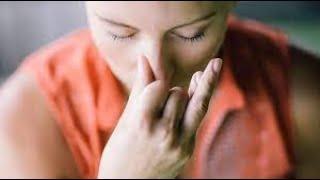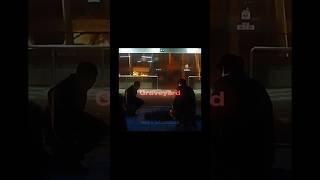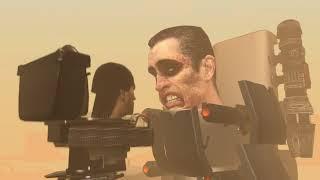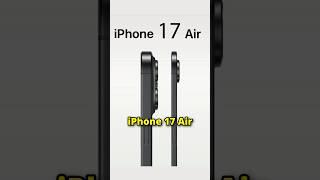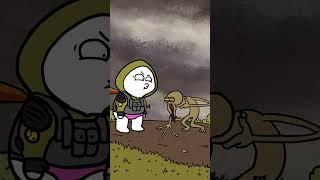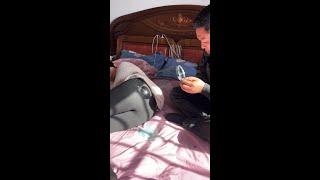
WHAT IS DYSPNEA? Dyspnea Meaning, Causes, Signs and Symptoms
What dyspnea means?
Dyspnea, also called shortness of breath, is a tight feeling in your chest where you may not be able to take a deep breath. This is a symptom that can be linked to many different conditions, like asthma, heart failure and lung disease
What is an example of dyspnea?
Chronic dyspnea can make you feel out of breath with everyday tasks, such as walking from room to room or standing up. Sometimes, shortness of breath gets better or worse with certain body positions. For example, lying down flat can trigger shortness of breath in people who have certain types of heart and lung disease
What is the most common cause of dyspnea?
Most cases of dyspnea result from asthma, heart failure and myocardial ischemia, chronic obstructive pulmonary disease, interstitial lung disease, pneumonia, or psychogenic disorders. The etiology of dyspnea is multi-factorial in about one-third of patients.
Is dyspnea a serious condition?
Dyspnea can range from mild to severe. If this condition is chronic and persistent, it may seriously limit activity and reduce quality of life. Dyspnea can be a result of lung, heart, vascular, neuromuscular and metabolic disease.
What is the difference between dyspnea and shortness of breath?
Shortness of breath — known medically as dyspnea — is often described as an intense tightening in the chest, air hunger, difficulty breathing, breathlessness or a feeling of suffocation. Very strenuous exercise, extreme temperatures, obesity and higher altitude all can cause shortness of breath in a healthy person.
How do I know if my shortness of breath is heart related?
Shortness of breath is the most common symptom of heart failure. It is a distressing feeling that may cause you to feel smothered, Shortness of breath initially occurs with exertion but may get progressively worse and eventually occur at rest in severe cases
Can you be short of breath but oxygen level normal?
A person may have dyspnea even though the actual levels of oxygen are within a normal range. It is important to understand that people do not suffocate or die from dyspnea. But tell your health care team right away if you have any of these symptoms or if they get worse.
Join this channel to get access to perks:
https://www.youtube.com/channel/UCcLiVlInJ0hmqpcUApgzvow/join
Reach us from: [email protected] (with 2 e)
#dyspnea #shortnessofbreath #medical $
How do you know if shortness of breath is serious?
Seek emergency medical care if your shortness of breath is accompanied by chest pain, fainting, nausea, a bluish tinge to lips or nails, or a change in mental alertness — as these may be signs of a heart attack or pulmonary embolism.
When should I be concerned about shortness of breath?
Our experts recommend scheduling an appointment with your doctor if your shortness of breath is accompanied by swelling in your feet and ankles, trouble breathing when you lie flat, high fever, chills and cough, or wheezing. You should also see a doctor if you notice shortness of breath becoming more severe.
What are 3 causes of dyspnea?
The most common causes of acute dyspnea are:
Pneumonia and other respiratory infections.
Blood clot in your lungs (pulmonary embolism)
Choking (blocking of the respiratory tract)
Collapsed lung (pneumothorax)
Heart attack.
Heart failure.
Pregnancy.
Severe allergic reaction (anaphylaxis)
How do you test for dyspnea?
The most useful methods of evaluating dyspnea are the electrocardiogram and chest radiographs. These initial modalities are inexpensive, safe and easily accomplished. They can help confirm or exclude many common diagnoses.
What is the most common cause of shortness of breath?
According to Dr. Steven Wahls, the most common causes of dyspnea are asthma, heart failure, chronic obstructive pulmonary disease (COPD), interstitial lung disease, pneumonia, and psychogenic problems that are usually linked to anxiety. If shortness of breath starts suddenly, it is called an acute case of dyspnea.
What are the signs of shortness of breath?
These include:
a “winded” feeling that persists even after you've been resting for 30 minutes.
swollen ankles and feet.
coughing, chills, and elevated body temperature.
wheezing or a whistling sound when you inhale and exhale.
a high-pitched sound when you breathe, known as a stridor.
blue fingertips or lips.
What causes short breath?
Causes of shortness of breath include asthma, bronchitis, pneumonia, pneumothorax, anemia, lung cancer, inhalation injury, pulmonary embolism, anxiety, COPD, high altitude with lower oxygen levels, congestive heart failure, arrhythmia, allergic reaction, anaphylaxis, subglottic stenosis, interstitial lung disease
Why do I feel like I'm not getting enough air?
Many conditions can make you feel short of breath: Lung conditions such as asthma, emphysema, or pneumonia. Problems with your trachea or bronchi, which are part of your airway system.
Dyspnea, also called shortness of breath, is a tight feeling in your chest where you may not be able to take a deep breath. This is a symptom that can be linked to many different conditions, like asthma, heart failure and lung disease
What is an example of dyspnea?
Chronic dyspnea can make you feel out of breath with everyday tasks, such as walking from room to room or standing up. Sometimes, shortness of breath gets better or worse with certain body positions. For example, lying down flat can trigger shortness of breath in people who have certain types of heart and lung disease
What is the most common cause of dyspnea?
Most cases of dyspnea result from asthma, heart failure and myocardial ischemia, chronic obstructive pulmonary disease, interstitial lung disease, pneumonia, or psychogenic disorders. The etiology of dyspnea is multi-factorial in about one-third of patients.
Is dyspnea a serious condition?
Dyspnea can range from mild to severe. If this condition is chronic and persistent, it may seriously limit activity and reduce quality of life. Dyspnea can be a result of lung, heart, vascular, neuromuscular and metabolic disease.
What is the difference between dyspnea and shortness of breath?
Shortness of breath — known medically as dyspnea — is often described as an intense tightening in the chest, air hunger, difficulty breathing, breathlessness or a feeling of suffocation. Very strenuous exercise, extreme temperatures, obesity and higher altitude all can cause shortness of breath in a healthy person.
How do I know if my shortness of breath is heart related?
Shortness of breath is the most common symptom of heart failure. It is a distressing feeling that may cause you to feel smothered, Shortness of breath initially occurs with exertion but may get progressively worse and eventually occur at rest in severe cases
Can you be short of breath but oxygen level normal?
A person may have dyspnea even though the actual levels of oxygen are within a normal range. It is important to understand that people do not suffocate or die from dyspnea. But tell your health care team right away if you have any of these symptoms or if they get worse.
Join this channel to get access to perks:
https://www.youtube.com/channel/UCcLiVlInJ0hmqpcUApgzvow/join
Reach us from: [email protected] (with 2 e)
#dyspnea #shortnessofbreath #medical $
How do you know if shortness of breath is serious?
Seek emergency medical care if your shortness of breath is accompanied by chest pain, fainting, nausea, a bluish tinge to lips or nails, or a change in mental alertness — as these may be signs of a heart attack or pulmonary embolism.
When should I be concerned about shortness of breath?
Our experts recommend scheduling an appointment with your doctor if your shortness of breath is accompanied by swelling in your feet and ankles, trouble breathing when you lie flat, high fever, chills and cough, or wheezing. You should also see a doctor if you notice shortness of breath becoming more severe.
What are 3 causes of dyspnea?
The most common causes of acute dyspnea are:
Pneumonia and other respiratory infections.
Blood clot in your lungs (pulmonary embolism)
Choking (blocking of the respiratory tract)
Collapsed lung (pneumothorax)
Heart attack.
Heart failure.
Pregnancy.
Severe allergic reaction (anaphylaxis)
How do you test for dyspnea?
The most useful methods of evaluating dyspnea are the electrocardiogram and chest radiographs. These initial modalities are inexpensive, safe and easily accomplished. They can help confirm or exclude many common diagnoses.
What is the most common cause of shortness of breath?
According to Dr. Steven Wahls, the most common causes of dyspnea are asthma, heart failure, chronic obstructive pulmonary disease (COPD), interstitial lung disease, pneumonia, and psychogenic problems that are usually linked to anxiety. If shortness of breath starts suddenly, it is called an acute case of dyspnea.
What are the signs of shortness of breath?
These include:
a “winded” feeling that persists even after you've been resting for 30 minutes.
swollen ankles and feet.
coughing, chills, and elevated body temperature.
wheezing or a whistling sound when you inhale and exhale.
a high-pitched sound when you breathe, known as a stridor.
blue fingertips or lips.
What causes short breath?
Causes of shortness of breath include asthma, bronchitis, pneumonia, pneumothorax, anemia, lung cancer, inhalation injury, pulmonary embolism, anxiety, COPD, high altitude with lower oxygen levels, congestive heart failure, arrhythmia, allergic reaction, anaphylaxis, subglottic stenosis, interstitial lung disease
Why do I feel like I'm not getting enough air?
Many conditions can make you feel short of breath: Lung conditions such as asthma, emphysema, or pneumonia. Problems with your trachea or bronchi, which are part of your airway system.
Тэги:
#daily_dose_of_medicine #What_is_dyspnea #dyspnea_meaning #dyspnea #shortness_of_breath #acute_dyspnea #symptoms_of_dyspnea #dyspnea_causes #dyspnea_signs #dyspnea_symptoms #shortness_of_breath_reasons #shortness_of_breath_after_the_vaccine #shortness_of_breath_covid_vaccine #what_causes_shortness_of_breath_with_normal_oxygen_levels #shortness_of_breath_after_covid #shortness_of_breath_after_eating #how_to_get_rid_of_shortness_of_breath #shortness_of_breath_anxiety #doctor #medicalКомментарии:
WHAT IS DYSPNEA? Dyspnea Meaning, Causes, Signs and Symptoms
Daily Dose of Medicine
ff lover army(1)
naveen gaming
Inside Dane Reynolds' OG Chapter 11 TV Surf Shop - A Mini Documentary
Stab: We like to surf
sweater cardigan,gebreide trui vest,knit sweater cardigan
Yi Sheng Sweater China Factory
Overview of The Ryan White HIV/AIDS Program Part A Planning Council Cycle
Ryan White HIV/AIDS Program TargetHIV
